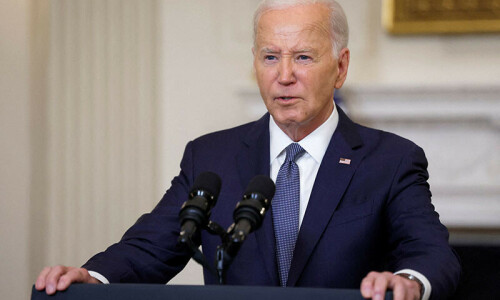OIC body condemns India's 'draconian' domicile law in occupied Kashmir

The Organisation of Islamic Cooperation's (OIC) human rights body on Saturday condemned the Indian government's new domicile law — Jammu and Kashmir Reorganisation Order, 2020 — calling it "illegal" and a "violation" of international laws.
The Indian government recently announced a new domicile law, under which an Indian citizen, who has lived in occupied Jammu and Kashmir for 15 years, can call the territory their place of domicile.
Through a gazette notification issued by the Indian government on Wednesday, a domiciled person has been defined as one who has resided for a period of 15 years in the occupied territory of Jammu and Kashmir or has studied for a period of seven years and appeared in class 10 or 12 examinations in an educational institution located there.
The Independent Permanent Human Rights Commission (IPHRC) of the OIC in a tweet said that it condemns the promulgation of the new law which attempts to "alter the demographic and geographic" status of India-occupied Kashmir (IOK).
Calling it a violation of international laws and United Nations Security Council and OIC resolutions on the issue, the international organisation asked India to repeal "draconian laws" and stop its human rights abuses in the region.
Prime Minister Imran Khan had also strongly condemned the new law, calling it a "violation of all international laws and treaties".
Saying the timing of the move was "particularly reprehensible", Khan said the action sought to exploit the international focus on the Covid-19 pandemic to further the Bharatiya Janata Party's "Hindutva" agenda.
Read: Pakistan strongly condemns Indian govt's attempt to 'illegally' alter IOK demography
Last month, Pakistan had called on India to lift the communication blockade imposed in occupied Kashmir and ensure supplies of essential commodities in the valley to contain the spread of Covid-19 and mitigate the suffering of Kashmiris.
The Indian government had on August 5, 2019 repealed Article 370 of its constitution, stripping occupied Kashmir of its special status. It also divided up occupied Jammu and Kashmir into two union territories; one Jammu and Kashmir, and the other the Buddhist-dominated high altitude region of Ladakh. The bifurcation of the territory came into effect on October 31 last year.
A strict lockdown and communications blackout has been in place in occupied Kashmir since August last year, with reports suggesting limited mobile data services and internet were temporarily restored in the region in January.










































